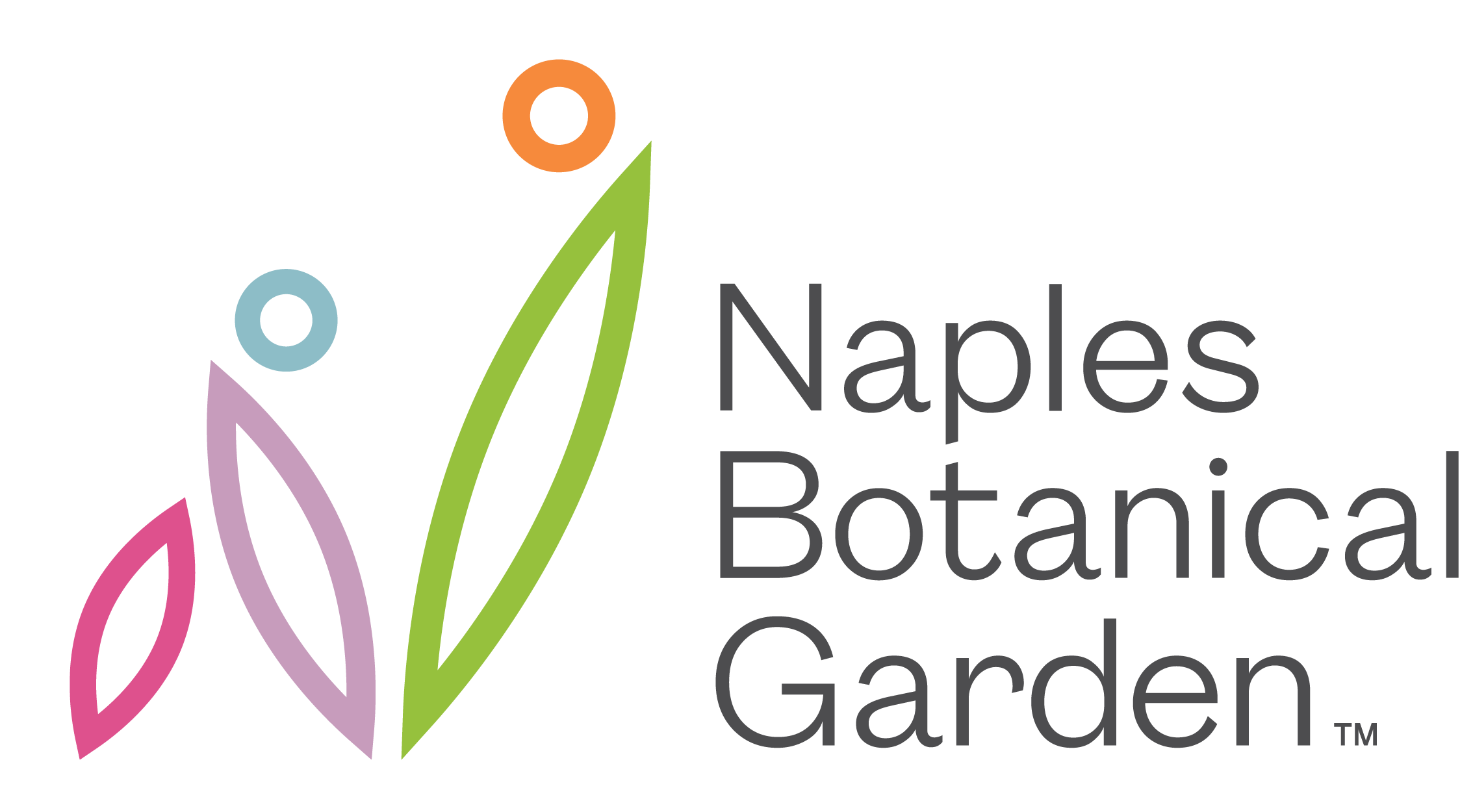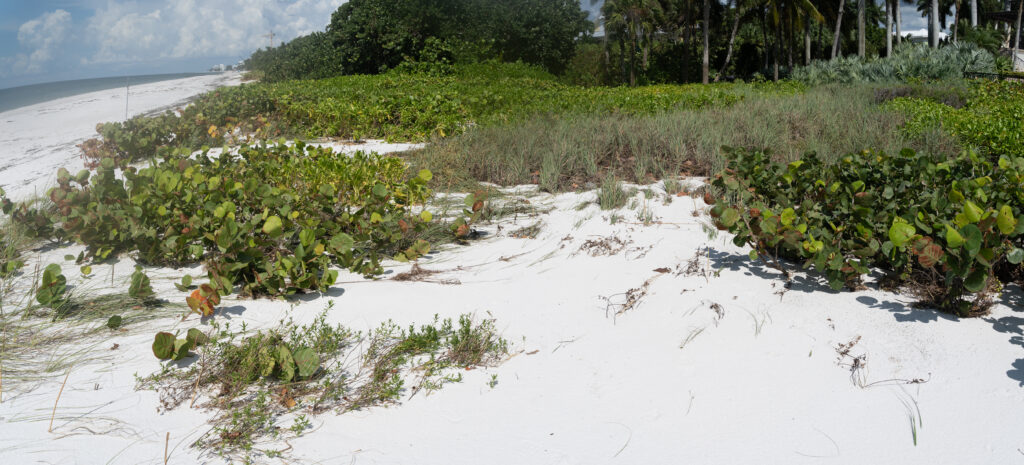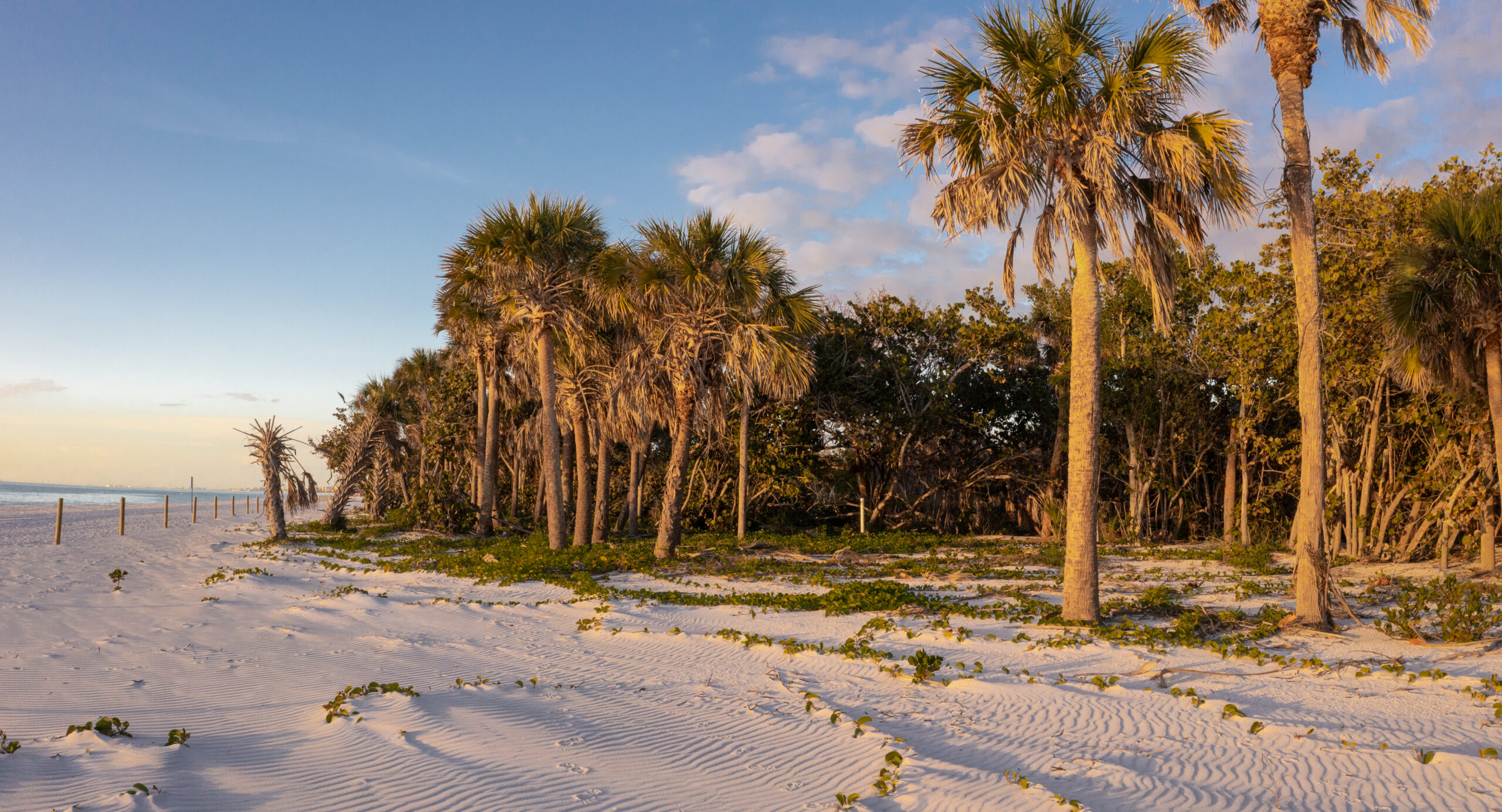Recent hurricanes have devastated Southwest Florida’s shorelines. Could plants help lessen such damage in the future?
Conservationists at Naples Botanical Garden have teamed up with researchers from The Water School at Florida Gulf Coast University to learn all they can about the dynamic coastal ecosystem and understand how beach dunes dissipate wind and water energy, lessening nature’s impact. They visit undeveloped beaches to observe wild-growing plants and the roles they play in the dune ecosystem. They periodically re-examine a pilot restoration project along Naples Beach where, notably, the plants the Garden introduced in 2021 rebounded quickly and resumed capturing and accumulating sand after Hurricane Ian’s devastation the following year.
Meanwhile, Garden staff collect seeds and cuttings from native beach dune plants for a mass production effort. The team is growing thousands of plants for dune restoration projects, using their coastal observations as a guide for determining what and where to plant. Additionally, they save hundreds of thousands of native seeds for future use in a restoration seed bank.
The Garden is collaborates with local governments as they invest in berm building and beach renourishment projects. A strategically planted coast—one with a rich array of native species—will hold that sand in place and prompt the development of nature’s shoreline barricades.
Beach Dune Education
Join Naples Botanical Garden on the beach to learn how the Garden uses plants to increase the resiliency of Southwest Florida beaches. Preregistration encouraged; free to attend.
Location: Lowdermilk Park 1301 Gulf Shore Blvd N., Naples, FL 34102
All programs begin at 9am and last 30 – 40 minutes unless otherwise noted.
Upcoming Beach Dune Education Program dates:
Wednesday, November 12, 2025
Thursday, December 11, 2025
Thursday, January 8, 2026
Tuesday, February 10, 2026
Thursday, March 19, 2026
Tuesday, April 7, 2026
Thursday, May 7, 2026
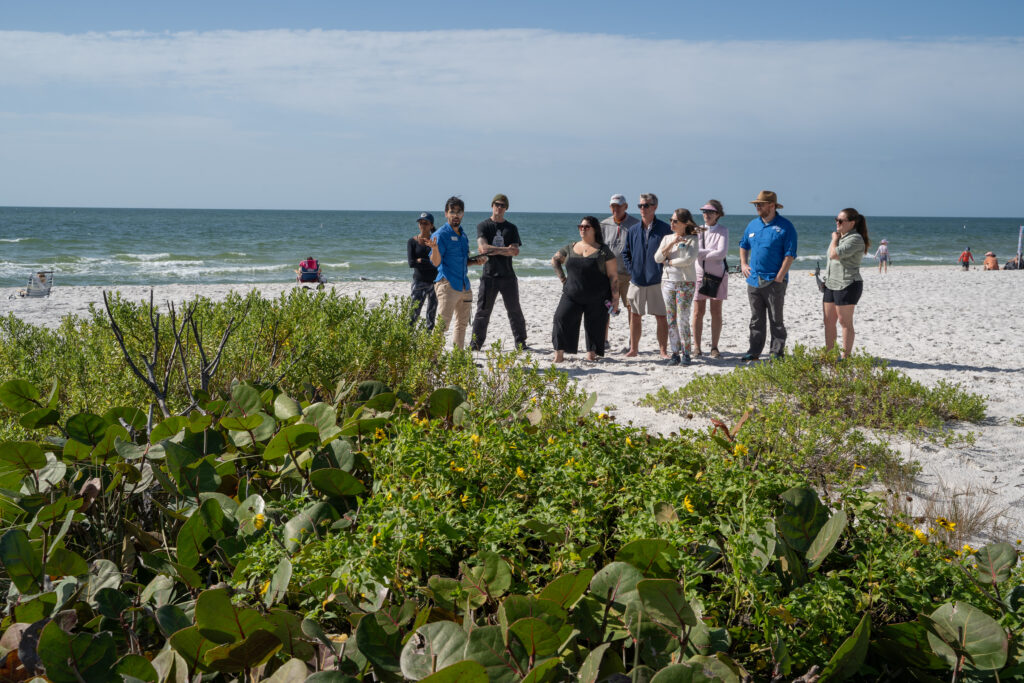
Dig Deeper: Beach Dunes — Growing A Coastal Barricade
Dig Deeper is an informal chat with Garden staff about a different topic every day. In this special program, learn more about the resilient plants building the protective dunes along Florida’s sandy shore. Included with Garden admission; free for Members.
All programs start at 11:30am and 1pm.
Please consult the daily activities list posted at the Garden when you visit to confirm location.
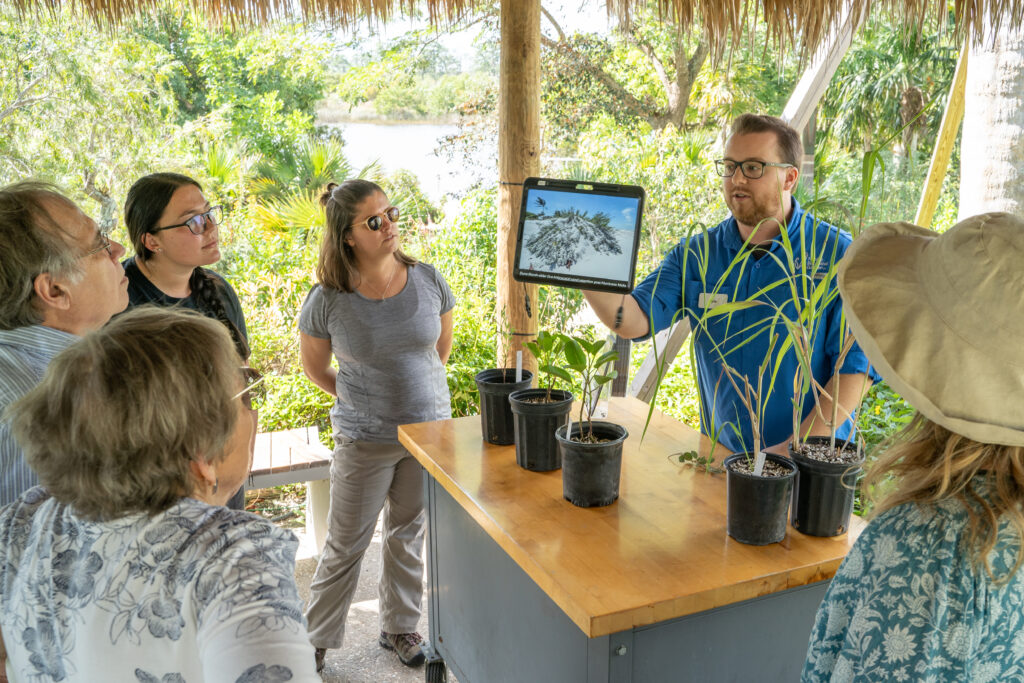
Bay cedar (Suriana maritima) is an important native coastal species. Hardy and dense, the shrub protects from shoreline erosion, provides a larval food source for…
Naples Botanical Garden and Florida Gulf Coast University study the workings of beach dunes and develop a restoration formula. The plant is a botanical jackpot.…
BEACH DUNE RESTORATION SUPPORTED BY

